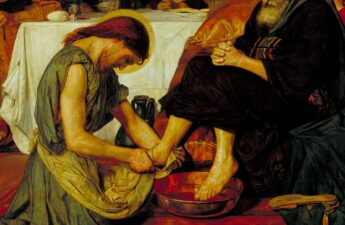“I will stand here for humanity, and though I would make it kind, I would make it true.”
Emerson, 1841, Pg.67
Some of us believe that kindness is the most important virtue, one which should be exercised above all others. But if our interpretation of kindness doesn’t include the condition of truth, can it be of any use or meaning to the other person? If it is lacking in truth, what purpose or profoundness does it have outside of encouraging pleasant interaction.
We must ask if kindness without truth, is kindness at all.
It seems over simplistic if we believe to be kind simply means to be agreeable and to not cause distress to another person. People desire to be liked by others, it is beneficial to be well regarded and we avoid uncomfortable engagements. Self-serving kindness allows us to gain a wanted impression or reaction from someone, by indulging in what pleases or comforts them and allows us to avoid having to manage any contempt. If this is the kindness we indulge in, truth needn’t even be a part of it. So, is it real kindness?
If we are to believe that the real meaning of kindness is behaviour coming from genuine care in another person’s best interests, then an act of kindness becomes a lot more of an undertaking. In order to best serve another person, we must be truthful, otherwise we are providing someone with falsities that they can never derive anything meaningful from. No person has ever achieved self-improvement standing on a support made of falsehoods.
We know that truth can be painful to deliver and receive, and when relying on the truth to be kind we cannot guarantee to please and we will surely cause distress. But we decide what our motivations are and to what end.
We choose to be kind, but we vow to be truthful.
We endure the difficulties associated with this because we have faith that the act of being truthful, although at first the harder path to follow, somehow will ultimately result in good.
Emerson, R.W., (1841) Self-Reliance, Essays and English Traits, The Harvard Classics, P.F. Collier & Son Corporation

‘Truth’ (1896). Olin Warner (completed by Herbert Adams). Left bronze door at main entrance of the Library of Congress Thomas Jefferson Building. Source: Wikimedia Commons
Aletheia, Greek goddess of truth. More precisely, the Greek word ἀλήθεια is understood to have meant disclosure, unconcealment. She is holding a mirror, symbolising self-reflection, and a serpent, representing wisdom. The mirror and serpent together traditionally are associated with Prudence. Aristotle defined Prudence:” it is a truth-attaining rational quality, concerned with action in relation to things that are good and bad for human beings.” (Aristot. Nic. Eth. 1140b.1)



